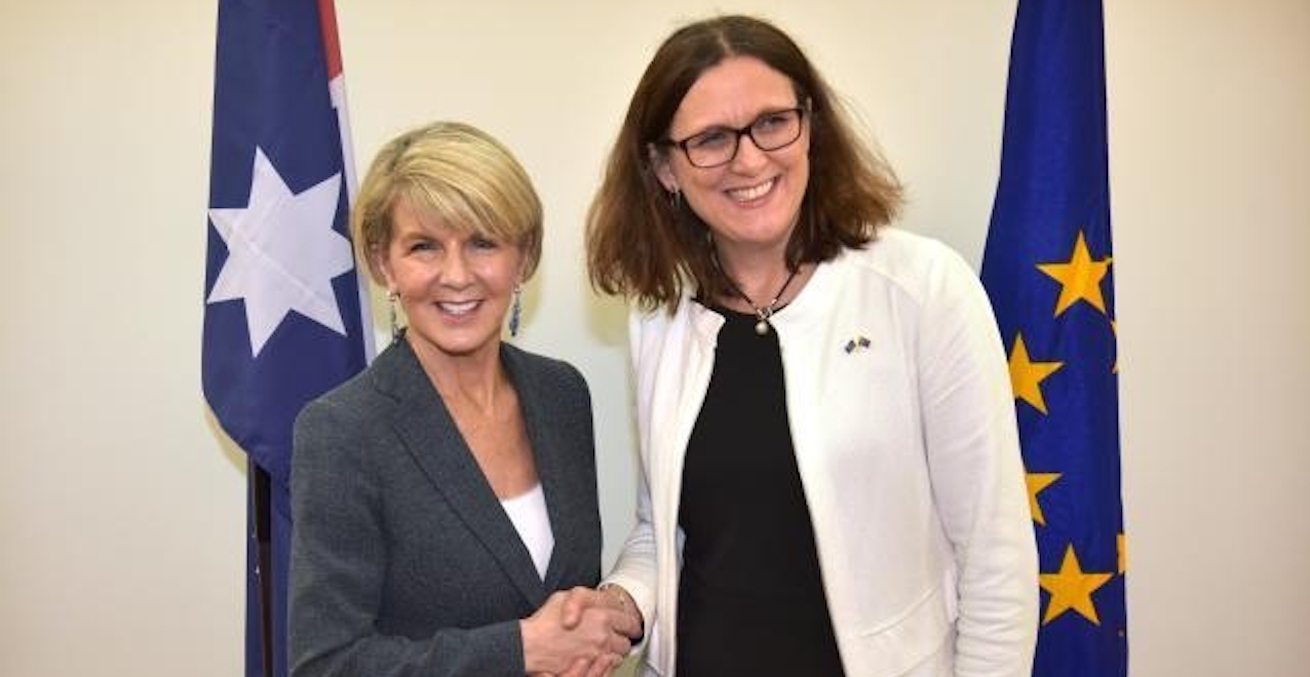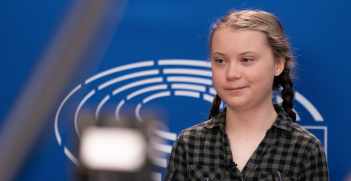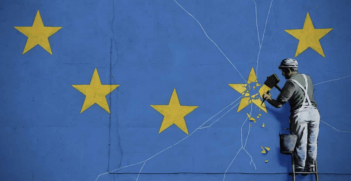EU-Australia FTA: The Business Case

The free trade agreement between Australia and the EU promises to deliver strengthened political collaboration and increase economic integration. What are the motivators and issues from a business perspective?
The free trade agreement between Australia and the European Union holds the promise to deliver strengthened political collaboration and increase economic integration. In essence, it aims to facilitate market access for firms and reduce business costs.
The political agenda is to promote, inter alia, economic collaboration, prosperity and welfare. Free trade agreement (FTA) motivations include also the advancement of peace and geopolitical stability, as well as the rent-seeking behaviours of governments and firms. Sometimes, FTAs may be underpinned by non-economic reasons in that preferential market access may be traded for political support when advancing a global agenda.
Main motivators and issues of FTA negotiations
To an important extent, as any other government in FTAs, the Australian government’s efficiency to make an FTA function depends on stakeholder engagement, buy-in and action. In other words, if an FTA provides provisions that firms do not access, because they may be irrelevant provisions or require significant additional resourcing, the FTA has little to no impact from a business perspective. Conversely, uptake from business will foster bilateral relations on more levels than just economics. The EU in itself is a case study of how such FTA agreements shape political, social and cultural engagement of a varying nature.
The EU has been Australia’s largest trading partner for the fifteenth year in a row. The Australian Bureau of Statistics reports that the EU represented 21 per cent or AU$29.9 billion of Australia’s total services trade in 2015, a 9 per cent increase compared to 2014 figures. This sets a positive basis for the forthcoming FTA. There are calls for increasing attention by the Department of Foreign Affairs and Trade to ‘embrace a genuine and effective notion of economic diplomacy’, and recognition of its crucial importance within Australia’s global trade and investment agenda.
Australian exports of goods and services are thriving. Because Australia’s economy is changing from resource- and-manufacture-intensive to a knowledge economy, increasingly, trade in intermediate goods and services is also considered relevant for future-orientated FTA negotiations. This type of trade is not represented in traditional trade data, yet it shapes Australia’s participation in the global value chain that surpassed exports in final goods and services. It has done so over the past 20 years, and competition for GVC participation is intensifying on regional and global levels. Inevitably, there will be winners and losers with the cross-border GVC competition.
Australia needs to ascertain its firms’ role in providing significant value to regional and global trade, so as to remain competitive. This has only recently been considered on the policy agenda, noted by the Department of Foreign Affairs and Trade primarily in the context of the Trans-Pacific Partnership preparations. It needs to be on the political agenda in the long term and adjusted to the sectors that are most pertinent to making the bilateral relationship progress.
A new era of uncertainty, illustrated by the exit of the UK from the EU and relatively less predictable governments in the USA and several EU countries, coincides with the preparation of these FTA negotiations, and influences them. Also, the media and parts of the general public question the benefit of globalisation. Yet, in the quest for certainty, negotiations and implementations of FTAs have boomed over the past and current decade.
The positive and negative impacts of trade arrangements made under free trade principles encompass political, economic and social costs and benefits. Often-cited concerns comprise socially challenging issues including patents, pharmaceuticals and specific policies. Political decision-makers negotiate the balance between national and bilateral economic, political and social interests, and determine, for example, tariff reductions and eliminations that may alter the competitive environment, and those based on World Trade Organization levels. Business engages, whether as individual companies, confederations or sector-level associations. If under-represented, this may become a barrier to prompt and effective negotiations. The importance of trade and investment derives from its significant potential in boosting further regional development in an interconnected, increasingly knowledge-driven global economy.
The business case for EU-Australia
In the case at hand, a strong institutional proximity exists between the partners’ economies. Similarities across institutional frameworks at the macro level allow firms to adapt activities to the institutional environment that they are embedded or hosted in. This provides the potential to shape institutional (political) change across their home and host countries, through lobbying for trade integration or harmonisation.
The EU’s Brexit context and other current geopolitical trends have caused several months of delay in the start of negotiations, and raised questions over the relevance and timeliness of Australia–EU versus Australia–UK. Interested business sectors are hence instrumental in supporting the momentum for Australia–EU negotiations, or both.
Given the nature of FTAs and their impact on international market access, firms in various sectors are interested parties in FTA negotiations. The long-term political agenda of FTAs, and how they create, adjust and limit markets, is contingent on business buy-in and action —that is, the access of FTAs in cross-border trade and investment. For business, FTA conditions may precede or foster sales, investments, geopolitical stability and economic growth, and create trade and investment. However, they can also lead to trade diversion and inertia when provisions are inadequately aligned with business needs and the economic outlook of the respective economy. Business sectors will be, through consultation and advocacy, hoping to have their interests considered. However, they will have a voice but not a vote in the making of the FTA.
Services deserve to be paid particular attention by Australian negotiators. Even more so, GVC participation in goods and services requires consideration. Services account for 19.7 per cent of Australia’s total trade in goods and services. Educational services (especially higher education), together with tourism, count amongst the most dominant service industries in Australia. Given the slowdown of commodities trade and the vanishing manufacturing capability, the education sector is expected to become even more crucial to the prosperity of a modern Australian knowledge economy. The rapid growth of tertiary education is a feature of developed societies of per-capita incomes exceeding US$10,000 (AUD$ 13,500), and below that also for emerging countries. Worldwide, the Gross Tertiary Enrolment Ratio is now increasing at 1 per cent a year. Competition is both global and regional. The facilitation of bilateral market access conditions can leverage the competitiveness of sectors that the economy relies on for its future, under the conditions and rationale outlined.
Moreover, regional trade agreements take the shape of bilateral FTAs when countries aspire to reach free trade through bilateral or multilateral negotiations, when outsiders also gain with the formation of FTAs. When FTAs result in trade creation, the benefits are shared beyond the FTAs’ borders. This is specifically driven by GVC ambitions and the nature of GVCs. The contemporary fragmentation of international trade, whether in goods or services, accentuates the advantage that economies can obtain from trade liberalisation through trade creation. The well-defined Australian business case for this FTA is crucial for economics to serve foreign policy ambitions. It remains in the hands of the government to deliver accordingly.
The business case must stand for comprehensive strategic FTA conclusions on intermediate and finished goods and services provisions, and the ensuing economic and social responsibility in a world in which even FTA negotiations have become a matter of competition between nations.
Gabriele Suder is Professorial Fellow at the University of Melbourne Faculty of Business & Economics and Melbourne Business School.
This article is an edited extract of her journal article titled “The business case for a free trade agreement between the European Union and Australia” published in Volume 72, Issue 3 of the Australian Journal of International Affairs.





